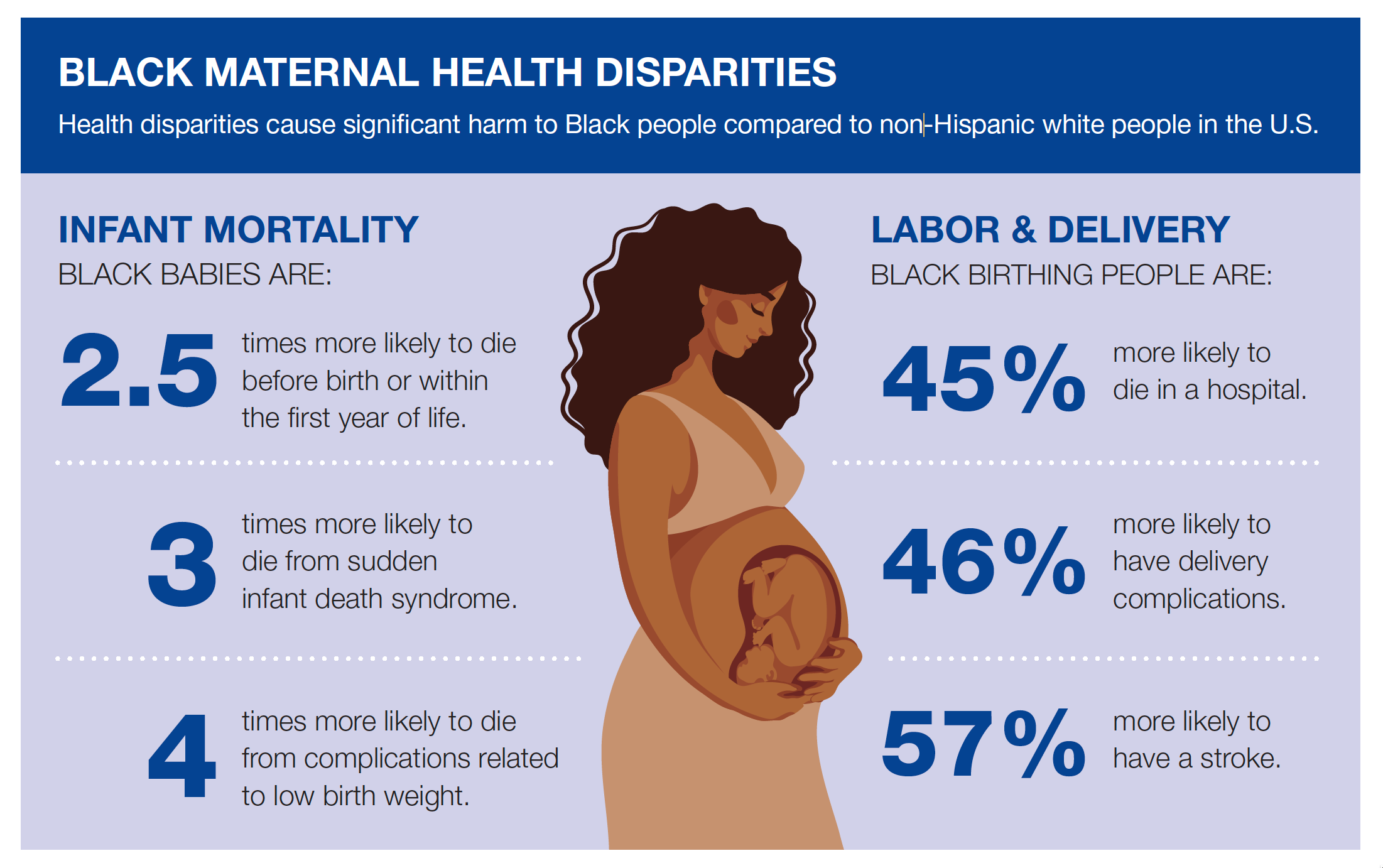Black Babies who BLOOM
A new initiative pairs newborn services with culturally responsive care.

Not being heard, not being taken seriously, and being misunderstood by health care providers are common experiences for many Black parents during routine medical visits. For Black parents of young children, that lack of cultural understanding can lead to grim consequences for the health of the baby and the birthing parent.
According to the California Department of Public Health, Black babies in the Bay Area are twice to three times as likely as white babies to be born prematurely or to die before their first birthday. Scientific evidence points to structural racism and a systemic lack of cultural awareness by providers as causes of these disparities.
To address these and other health disparities and improve overall health outcomes for Black children and families, in June, UCSF Benioff Children’s Hospital Oakland launched a new initiative called BLOOM: Black Baby Equity Clinic. The new clinic, which was created entirely with philanthropic support, matches Black babies and young children – from newborn to 3 years old – with Black health care teams. These include pediatricians, social workers, lactation specialists, therapists, and health educators, all of whom are trained to understand the social, cultural, and racial challenges Black families face daily.
“This clinic is for the Black families who feel unseen and unheard and feel their concerns about their baby’s care are being dismissed,” said Dayna Long, MD, pediatrician and BLOOM co-founder. “Here, Black parents will know they are valued and their babies are loved.”
Trust and Understanding
Hope Williams-Burt, the mother of four children, including an 11-month-old, spent years struggling to navigate a health care system that left her feeling alienated and disempowered while she coped with a complex set of life challenges, including homelessness, food insecurity, and two pre-term births.
Williams-Burt said that her experience with Long treating her young daughter was vastly different from pediatric visits for her three previous newborns. “Dr. Long makes me feel safe as a parent,” Williams-Burt said. “I trusted her instantly because she understands my story and has the courage and freedom to adjust her care to my baby’s needs. I don’t have to do unnecessary explaining. She just gets it.”

Wraparound Care
Appreciating the diversity of the Black experience, intergenerational trauma, and mistrust of the health care system is at the heart of what Long and co-founder Javay Ross, MD – both pediatricians at UCSF Benioff Oakland’s Primary Care Clinic – envisioned for BLOOM.
“We have seen the impact that systemic biases have had on the health and well-being of our own family members,” Ross said. “We are ready to change the narrative.”
Trained in cultural humility and trauma-informed care, Black pediatric providers from multiple disciplines throughout UCSF Benioff Children’s hospitals in Oakland and San Francisco come together to heal, treat, and counsel families every Friday. In exam rooms at the Oakland hospital’s pediatric primary care clinic on Claremont Avenue, parents share physical, psychological, and environmental challenges and celebrate their delight in their babies. Topics include breastfeeding, first words and smiles, sleeping through the night, and any unmet basic needs, such as food and housing.
Black Doctors, Black Families
Research from the Association of American Medical Colleges shows that racial alignment between patients and providers improves health care use and outcomes, lowers stress, and increases patient satisfaction. With a provider who is the same race as themselves, parents say they feel safer, more trusting, and not judged.
“Throughout the majority of my life, I have never had the opportunity to receive medical care from a Black doctor,” Long said. “My three Black sons have also never had the privilege of being treated by a Black doctor, let alone a Black primary care pediatrician. I know how important this is to Black families.”
Additional philanthropic support will be essential to sustaining BLOOM and its groundbreaking model of care for Black families. For more information, contact Myhana Kerr at [email protected].